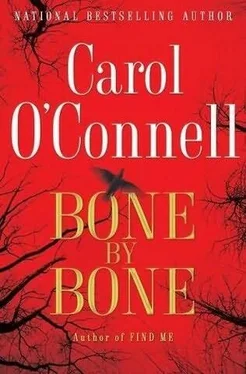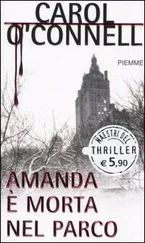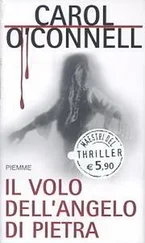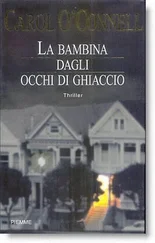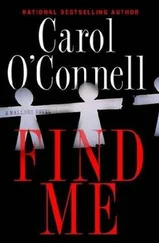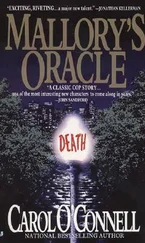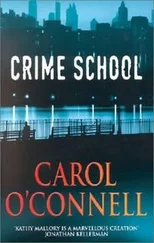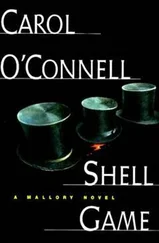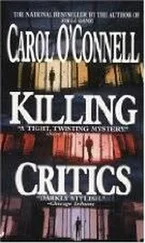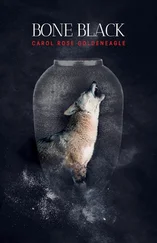"While I'm thinking that over, I need the name of the woman who gave you my second alibi." He watched the sheriff's eyes as the man weighed a nicked shovel against this old bit of evidence.
Cable Babitt shrugged. And now it was obvious that it had never occurred to this man that one of the false alibis could have been made by a witness to a murder-or a killer.
"I suppose it hardly matters now," said the sheriff. "Nobody in this town would've believed her. I wish she'd never come in. I had Evelyn's story to clear you. But two alibis, well, that just-"
"Alibis you said you never wrote down, statements never signed. You've got nothing. Now you can explain that and the shovel to the reporters… or you can give me a name. Who was my second alibi?"
After being turned away from the gravesite, Ferris Monty was outraged. His bile spilleth over with indignation, and he poured it into the telephone. The California Bureau of Investigation was remarkably nonchalant about homicides north of Sacramento. However, they did have a CBI agent billeted in Saulburg on special assignment.
Ferris drove to the county seat, where he marched into the local headquarters of the Highway Patrol and demanded to speak with Special Agent Polk.
Following a wait of thirty minutes-another outrage-he laid out his case in the office temporarily assigned to the CBI agent. "Oren Hobbs was giving the orders," said Ferris. "I heard him. You know this isn't right. He's a civilian for God's sake. Why would the sheriff let him take charge like that? And another thing-if that grave is on state land, it's your jurisdiction."
Sally-call me Sally-Polk was years younger than Ferris, and yet this investigator reminded him of his mother, though he could not say why. Perhaps it was the rounded maternal shape, the gray in her hair-the plate of warm cookies on the desk.
"Sweetheart, is your tea too hot?" she wanted to know.
It was peppermint tea. Every article ever written about him had mentioned his love of this variety. He would swear this was even his brand.
How preposterous.
He had imagined this scene in advance of his arrival, and nowhere in that scenario did a cop call him sweetheart like she really meant it, and there was no damned tea or cookies. Adding to his disappointment, the atmosphere of Polk's office was all wrong, and it hardly seemed like a temporary accommodation for the visiting CBI agent. Cheery potted plants abounded in this sunlit room. The photographs of relatives were not discreetly placed on the desk. Oh, no. Her devotion to family was advertised on every wall. He had envisioned this meeting with a savvy, hardened detective, a man who would hang on every word of Ferris's theory. Reality was a dumpy hausfrau in a flowered sack that passed for a dress, a woman with a limited attention span, so easily distracted by any small plant that needed watering.
He raised his voice. "Why was Oren running that crime scene when he was always the prime suspect-the only suspect?"
The woman clearly did not care. Her back was turned to him as she stood before the window with a view of the parking lot. "So that's the famous yellow Rolls-Royce. Was it really owned by Al Capone?"
It was all too apparent that he would have to lead this fool woman by the hand. "Oren was the last one to see Joshua alive. I know that for a fact. I've interviewed a lot of people in Coventry. Of course that was twenty years ago."
"When you were writing a book? Isn't that what you said?" She left the window to stand by his chair. "A book about murder in a small town, I suppose." Not waiting for a response, she pressed on. "Well, how prescient. Until recently, Joshua Hobbs was only a missing person. But all those years ago, you decided that he'd been murdered." She placed one soft hand on his shoulder. "That's odd. I mean the boy might just as well have died in a fall out in the woods." Now he had her attention.
"I never said my book was about murder. I said it was about a tragedy in a small town. The effect it had on the-"
"But that's not your style, is it, dear? You write the gossip behind the headline news, and I think you're damned good at it. I make a point of reading your column. Call me a fan."
"Thank you, but I wasn't always a gossip columnist. I began my writing career as a serious novelist. Now here's another point to consider. Oren's father was an active judge in those days. And he came from an old California family-lots of money. He could've used his influence to get Oren out of town and beyond the reach of the sheriff."
This information about Henry Hobbs seemed to make no impression on her. She gave him a kindly smile as she sat down behind her desk. "A novelist? You don't say. Well, I thought all your books were nonfiction- true crime. What sort of novels did you write? Murder mysteries?"
Oh, God. He imagined that crime genre must be her idea of literature.
"I only published one novel," he said, teeth on edge. Stupid woman. "And it didn't have a single murder." And now he intended to lead her back to the matter at hand, the stuff of his current book. "I think it's obvious that Cable Babitt cooperated-no, he conspired to send Oren away."
Sally Polk pushed the plate of cookies across the desk. "Joshua Hobbs was only fifteen years old." Her eyes gleamed with genuine interest. "Were there lots of young boys in that old novel of yours?"
Apparently, the sheriff had called ahead to warn his people off. No one took notice of Oren when he entered the private office alone and locked the door behind him. He pulled Cable Babitt's keys from his pocket and opened the credenza to plunder the man's files.
The pile of old case folders made less than an hour's read-a waste of time, mostly rumor and hearsay. William Swahn had done a more thorough job of interviewing the people of Coventry. Oren had already formed an opinion of the sheriff's incompetence, but there must be more evidence than this. Turning back to the credenza, he opened the lower drawer to thumb through unrelated files, looking for something out of place, and he found an unmarked red folder.
Revelation.
The sheriff had lied to him about never committing the old alibi statements to paper.
There had been no formal interview with young Isabelle Winston, perhaps because Cable Babitt was, at core, a kind man. The teenager had submitted her four-page story in longhand, a schoolgirl script of curlicues and rampant sex in the deep woods with Oren Hobbs. Its content was the stuff of romance novels and bad movies. The wording described nothing more than a young girl's lack of experience, and it inadvertently exposed her as a virgin. Twenty years ago, the sheriff had probably slipped this statement into a drawer and smiled as he let her go unpunished for lying.
Oren moved on to alibi number two, a more official document. Evelyn Straub's statement had been transcribed from a taped interview, only one page of words neatly typed. He recognized her signature below the final line.
EVELYN STRAUB: Usually, I screwed the boy at the hotel. There's always an empty room to use. There was only one time at the cabin. I never took anyone there for sex. It was special. But that day, I made an exception.
SHERIFF BABITT: Why? I need something I can believe in, Evelyn.
EVELYN STRAUB: Too many birthdays, Cable. I'd just broken every mirror in that cabin. And then I looked through a back window and saw Oren out there on the trail. I needed him. I just needed him.
SHERIFF BABITT: And what about Josh?
EVELYN STRAUB: He went on ahead. He took that old hiking trail that runs past the cabin.
SHERIFF BABITT: So Josh goes up the trail by himself-believing God knows what-and Oren was fine with that?
Читать дальше
